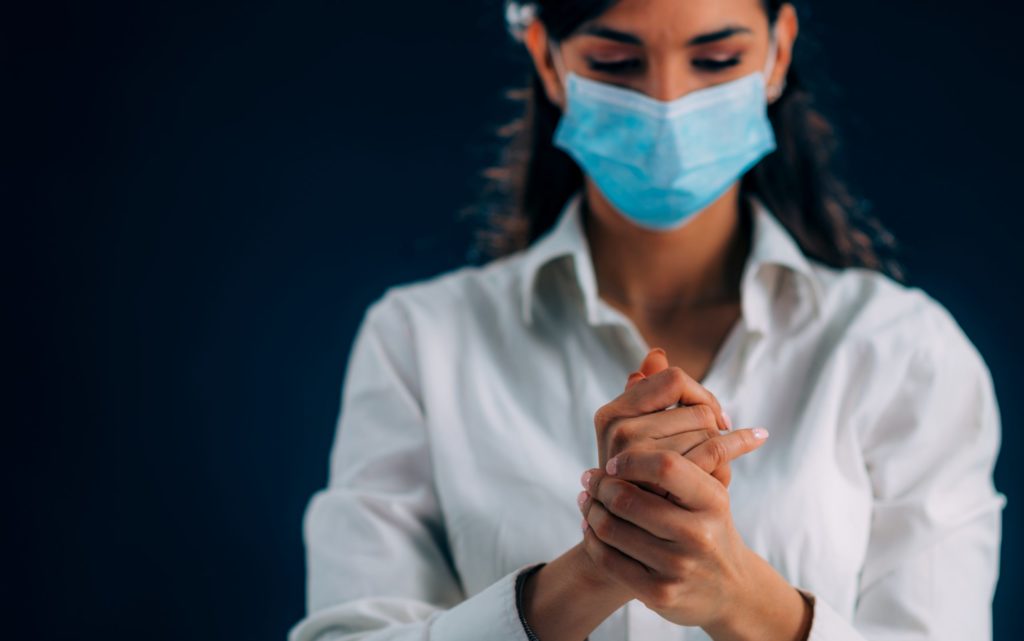When the coronavirus pandemic took hold in March and much of the country shut down, one of the early concerns focused on people suffering from addiction. Would they be able to see their doctors and attend support group meetings? How would they get medication? Would isolation and social distancing lead to a higher rate of relapse?
While new challenges have made recovery during the COVID-19 pandemic more difficult in some cases, key barriers to recovery have been overcome, which could have long-term benefits for people dealing with addiction. Let’s take a look at the impact of COVID-19 on addiction recovery.
Screening, Testing, Cleaning
For patients entering a rehab or detox center for the first time, admission staff will typically ask more questions to determine if you could have been exposed to COVID-19. For example, have you or someone you know experienced COVID-19 symptoms in the past two weeks? If so, were you tested? Have you visited places where infection rates are high?
Most rehab and detox centers are taking the temperature of every person who enters the facility each day, including staff, patients, and visitors. COVID-19 tests may be administered periodically. Distancing guidelines are followed during individual and group therapy, meals, and recreational activities, and facilities are cleaned and disinfected more frequently.
Toxicology Monitoring
Toxicology monitoring for drug and alcohol use involves urine drug screens, saliva samples, and breathalyzer tests. These types of tests tell clinicians whether a person has been using and can serve as a relapse deterrent for patients, but they can also increase the risk of spreading the coronavirus. As a result, some rehab centers paused toxicology monitoring while additional safety measures have been implemented.
Virtual Care
Many feared that stay-at-home orders would limit access to care and social interaction. However, teleconferencing and telemedicine have actually made substance abuse treatment increasingly accessible in response to the pandemic.
In the aftermath of the novel coronavirus spreading all over the globe, addiction treatment more accessible, convenient, and even more cost-effective for patients by the rapid transition to virtual care. In lieu of geographical and scheduling restrictions, patients can attend group therapy sessions without worrying about transportation or the very real possibility of exposure to COVID-19. Yet the efficacy of these therapies remains largely intact; patients can continue to communicate face-to-face in spite of social distancing and self-quarantine protocols.
Even addiction treatment centers have benefited from the cost savings of remote and online-based therapies since they can treat a greater number of patients on a more frequent basis.
Access to Medication
Regulations that limited a doctor’s ability to prescribe medication to patients who had only been seen virtually were relaxed shorty after the pandemic hit. These policy changes made it possible for patients to receive the prescription medication they need to support their recovery during the COVID-19 pandemic. Without access to medication, there likely would be an increased risk of relapse and overdose.
While research into the effects of virtual care and prescriptions are ongoing, the belief among many addiction experts is that these services are helping patients improve and stay in treatment longer. As a result, virtual care and prescriptions aren’t likely to go away any time soon.
Outdoor Therapy
Social distancing guidelines and limits on indoor group meetings have forced many therapy sessions outdoors. Many rehab centers have incorporated innovative therapy methods into addiction treatment that take advantage of nature, from surfing to rock climbing to hiking. Physical activity and fresh air are beneficial to everyone, but especially those suffering from addiction who could be feeling trapped and isolated.
COVID-19 Hasn’t Stopped DetoxLA from Providing Addiction Treatment
Entering a detox center, progressing to a rehab facility, and receiving ongoing care as part of a long-term recovery plan were stressful enough before the coronavirus came along. Although the pandemic has certainly created additional anxiety for people recovering from addiction, as well as those who treat these patients, DetoxLA continues to provide essential care from our co-ed medical detox center in Los Angeles.
To learn more about our co-ed medical detox program, and how we can support your recovery during the COVID-19 pandemic, contact us today.

